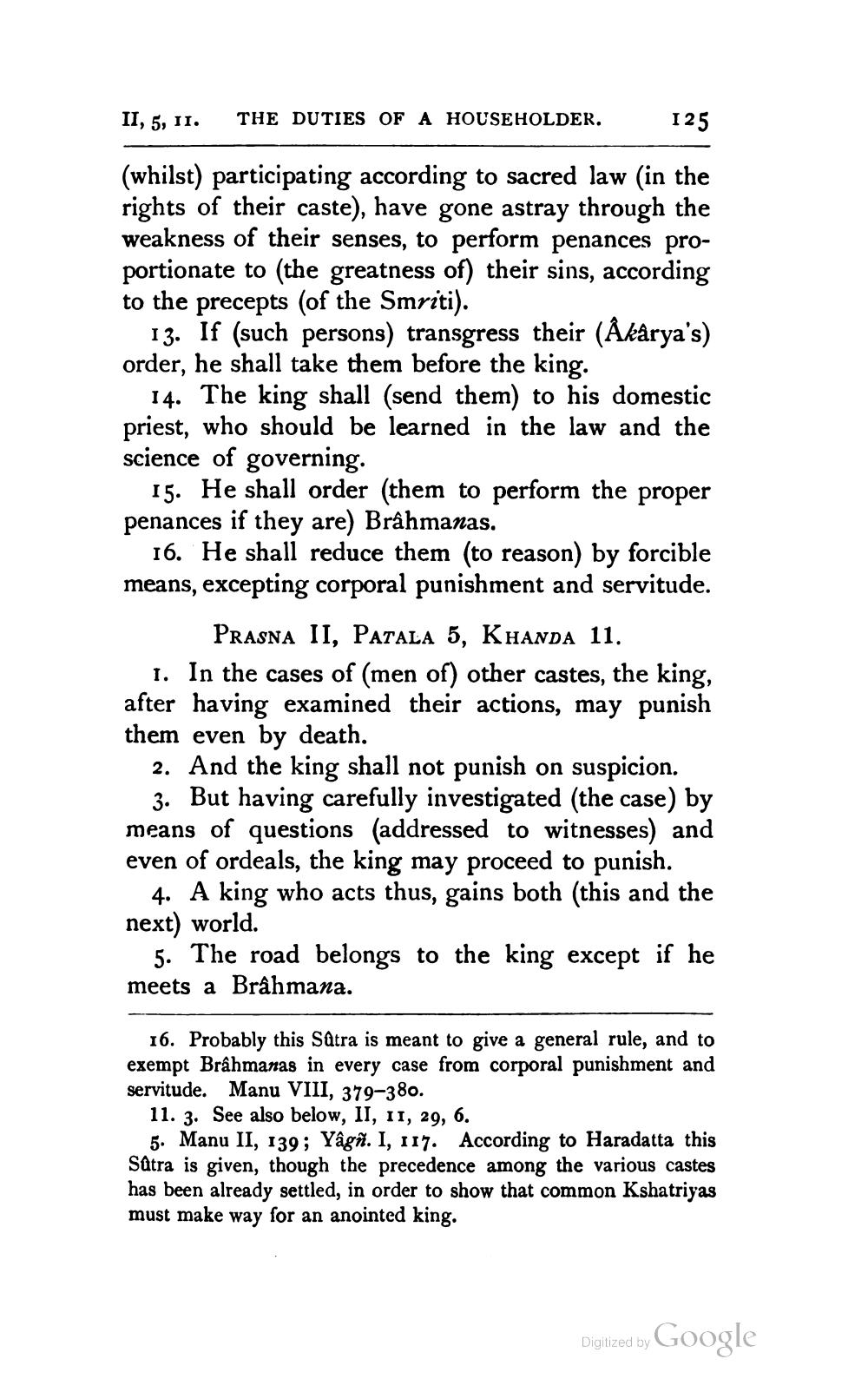________________
II, 5, 11.
THE DUTIES OF A HOUSEHOLDER.
125
(whilst) participating according to sacred law (in the rights of their caste), have gone astray through the weakness of their senses, to perform penances proportionate to (the greatness of) their sins, according to the precepts (of the Smriti).
13. If (such persons) transgress their (Åkarya's) order, he shall take them before the king.
14. The king shall (send them) to his domestic priest, who should be learned in the law and the science of governing.
15. He shall order (them to perform the proper penances if they are) Brâhmanas.
16. He shall reduce them (to reason) by forcible means, excepting corporal punishment and servitude.
Prasna II, PATALA 5, Khanda 11. 1. In the cases of (men of) other castes, the king, after having examined their actions, may punish them even by death.
2. And the king shall not punish on suspicion.
3. But having carefully investigated (the case) by means of questions (addressed to witnesses) and even of ordeals, the king may proceed to punish.
4. A king who acts thus, gains both (this and the next) world.
5. The road belongs to the king except if he meets a Brâhmana.
16. Probably this Sätra is meant to give a general rule, and to exempt Brahmanas in every case from corporal punishment and servitude. Manu VIII, 379-380.
11. 3. See also below, II, 11, 29, 6.
5. Manu II, 139; Yâgñ. I, 117. According to Haradatta this Sūtra is given, though the precedence among the various castes has been already settled, in order to show that common Kshatriyas must make way for an anointed king.
Digitized by Google




